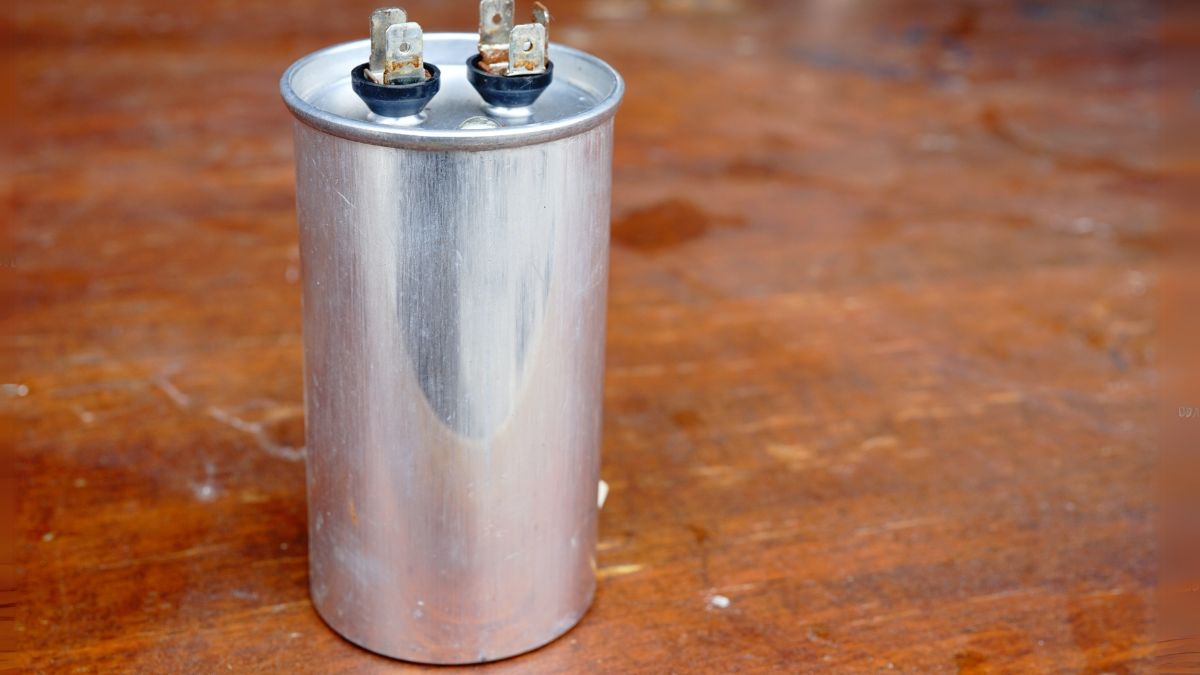
How to Tell if an AC Capacitor is Bad
February 3, 2025To tell if an AC capacitor is bad, you can perform a few checks and tests but if you don’t feel confident using a multimeter nor handling electrical parts, it’s best to call a professional.
While multimeters are relatively affordable and easy to use, they require a solid understanding of electrical systems to use effectively and safely. We offer HVAC repair and preventative maintenance on all types of equipment, including AC capacitors.
Plus, Refrigeration Control Co.’s service vehicles are stocked with a large inventory of parts and supplies. Contact us now to request service and resolve any AC capacitor issues your business is experiencing.
Here are some common signs and methods for identifying a bad AC capacitor:
Signs of a Bad Capacitor
- AC Unit Is Not Starting: If the air conditioner fails to start or takes longer than usual to start up, the capacitor might be faulty.
- Humming Noise: If you hear a constant humming sound from the outdoor unit, it could indicate that the capacitor is not providing the proper electrical charge.
- Frequent Tripping of Circuit Breaker: If the breaker trips frequently or the unit continuously stops working, the capacitor could be faulty.
- No Cool Air: If the system turns on, but doesn’t blow cool air, it could be due to a bad capacitor affecting the compressor or fan motor.
- Visible Damage: Look for bulging, leaking, or burnt marks on the capacitor. These are clear indicators of a bad AC capacitor.
Test the Capacitor Under Load
- Check the capacitor data tag for capacitance and tolerance.
- Measure the amperage off the capacitor’s start winding.
- Measure the voltage applied across the capacitor.
- Multiply the amperage by 2652 and then divide by the voltage to find the capacitance.
- If the under-load capacitance is significantly low or high, consider replacement.
Visual Inspection
- Bulging or Leaking: A bad capacitor may be swollen or have liquid leaking from it.
A bad capacitor that is swollen or leaking may still hold an electrical charge, even if the power is turned off. If you attempt to handle it without properly discharging it first, there’s a risk of receiving an electrical shock. Capacitors store energy and can release it suddenly, potentially causing serious injury. If the capacitor is leaking, the fluid or chemicals inside it can be harmful.
- Discoloration or Burn Marks: If you see any burn marks or discoloration on the capacitor’s exterior, it indicates internal damage.
Something to keep in mind: When lightning strikes near your building, it can cause a significant power surge through the electrical system. These surges can travel through power lines and into your HVAC system, potentially damaging sensitive components like the AC capacitor. The sudden spike in voltage can exceed the capacitor’s rated capacity, leading to failure.
Some commercial or building insurance policies include coverage for power surges caused by lightning strikes, which could potentially cover the repair or replacement of an AC capacitor damaged by such an event. It’s important to check if surge protection or electrical surge damage is specifically mentioned in your policy.
Common Questions Regarding AC Capacitor Repair
Building facilities managers in the Corona, CA, area may have concerns about how a bad AC capacitor could impact the performance of a commercial air conditioning system. At Refrigeration Control Co., we understand the importance of keeping a commercial HVAC system running smoothly, and we’re here to answer some of the most common questions regarding AC capacitor repair. Our expert technicians can help ensure that your system is running at its best.
Will AC run with a bad capacitor?
In many cases, AC will not run with a bad capacitor. The capacitor is essential for starting and running the compressor and fan motor. Without a functioning capacitor, the system may not turn on at all or may operate poorly.
Will a bad capacitor cause AC to not cool? Yes, a bad capacitor can cause the AC unit to fail in cooling, as it impacts the operation of the compressor and fan motor, which are necessary for cooling.
Professional HVAC Technicians Are Ready to Help
If you’re not comfortable testing the capacitor yourself, or if the tests indicate it’s faulty, it’s a good idea to have an RCC professional HVAC technician inspect and replace it. They can perform the necessary AC capacitor replacement to restore your system’s function.
If the AC capacitor is damaged or its capacitance is outside the normal range, it should be replaced. Ignoring a bad AC capacitor can lead to further damage to your HVAC system and reduced performance.
AC Capacitors in Commercial Refrigeration Systems
Just as in air conditioning systems, AC capacitors play a crucial role in commercial refrigeration systems. These capacitors are essential for powering the motors that drive the compressor and fan, ensuring that your refrigeration system operates at peak efficiency. At Refrigeration Control Co, we understand the importance of these components for smooth, reliable operation. Our commercial refrigeration service and our industrial refrigeration service are designed to meet the unique needs of businesses across the Orange County, San Bernardino County, Los Angeles County, and Riverside County areas.
RCC’s Commitment to Keeping Your Refrigeration Systems Running
The capacitors in your commercial refrigeration equipment are key to the operation of the compressor and fan motors, which are crucial for maintaining proper temperatures. If these components fail, often due to issues like power surges or wear and tear, your system can face significant downtime.
This is where RCC’s expertise becomes essential. Whether it’s diagnosing a failing capacitor or handling more complex repairs, RCC has the capability and commitment to keep your facilities running smoothly 24/7.